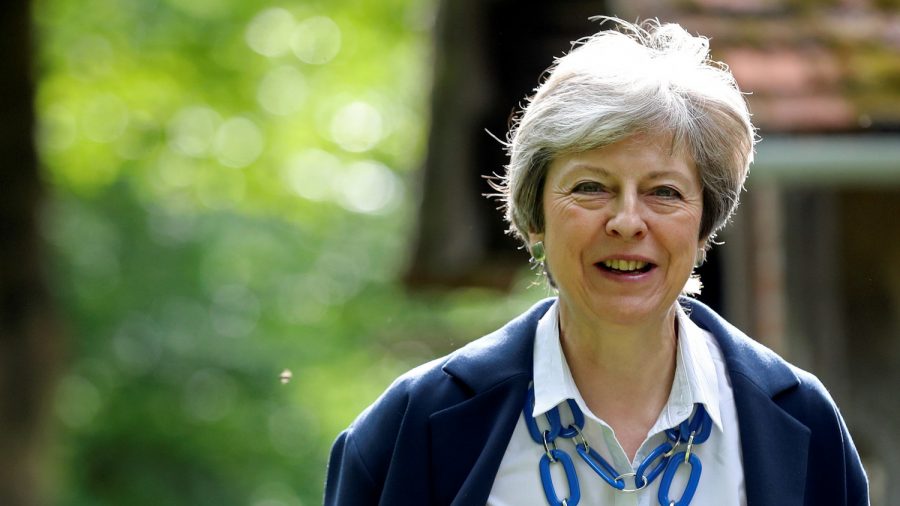LONDON—British Prime Minister Theresa May steps down as leader of the governing Conservatives on June 7, officially triggering a contest to replace her that could see her party embrace a tougher stance on Brexit.
Today @theresa_may resigns as leader of the @Conservatives. For more information on how her successor will be chosen, this @commonslibrary‘s briefing on Conservative Party leadership elections is a useful resource: https://t.co/L62ac4qQfW pic.twitter.com/pQiJqmLBkk
— UK House of Commons (@HouseofCommons) June 7, 2019
May announced she would step down last month after failing to deliver Britain’s departure from the European Union on time, deepening a political crisis in a divided country struggling to move on from a 2016 referendum on Brexit.
PM @Theresa_May makes a statement in Downing Street https://t.co/eg4ElQMXVR
— UK Prime Minister (@10DowningStreet) May 24, 2019
She will continue to work as prime minister until her party elects a new leader, a crowded race that will be defined by Brexit and competing approaches on how to deliver Britain’s biggest policy shift in more than 40 years.
You want this stage of the Brexit process to be over and done with. I agree. I am on your side.pic.twitter.com/0w7GHgvieL
— Theresa May (@theresa_may) March 20, 2019
“For the remainder of her time in office, she will be building on the domestic agenda that she has put at the heart of her premiership,” her spokeswoman told reporters.
Later on Tuesday, May will exchange letters with the chairs of the influential 1922 Committee of Conservative lawmakers, and will spend the day working in her home constituency, a haven she retreats to.
The 1922 Committee confirms Theresa May is officially stepping down as leader of the Conservatives and race to replace her begins.
Get the latest on Theresa May formally standing sown as Tory leader: https://t.co/a0ejSKhHWo pic.twitter.com/gTJnwQEhfA
— Sky News (@SkyNews) June 7, 2019
May, once a reluctant supporter of EU membership who emerged from the chaos after the 2016 referendum as the “steady” choice, steps down with her central pledge—to lead Britain out of the bloc and heal the country’s divisions—unfulfilled.
Her team has been keen to shape her legacy beyond the Brexit failure, but she bequeaths to her successor a nation where traditional political divides are being eroded by strong beliefs on whether Britain should leave the EU, and how it should do so.
The contest to replace her has already been heating up for weeks, with candidates arguing over the rights and wrongs of a so-called no-deal Brexit, or leaving the EU without a deal.
Official nominations will be received on June 10. The selection process should be completed by the end of July.
Former foreign minister Boris Johnson is the favorite to win. He champions a tougher stance on Brexit, saying Britain should leave with or without a deal by the new deadline of Oct. 31, and is trying to persuade Conservatives that he, a former London mayor, is the only candidate who could win a new national election for the Conservative Party.
I’m standing to be Leader of the Conservative Party to deliver a proper Brexit and an extraordinary future for everyone in our country – but I need your support.
Please sign up to get involved ????https://t.co/9sDJCiimxL
— Boris Johnson (@BorisJohnson) June 4, 2019
Other front runners are playing catch up, with the current foreign minister, Jeremy Hunt, and environment minister Michael Gove taking a more moderate stance on Brexit.
By Elizabeth Piper


